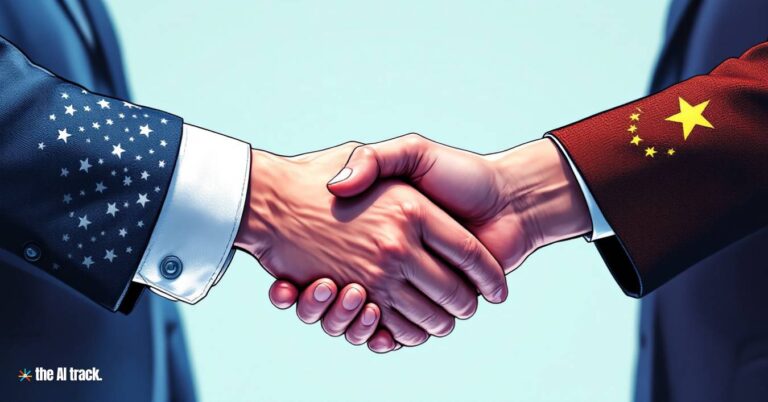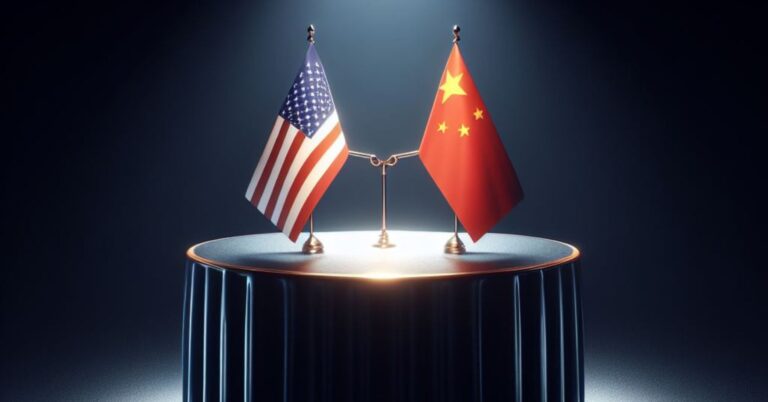In their final meeting, Presidents Biden and Xi Jinping reached a historic agreement that nuclear weapon use must remain under human control, not artificial intelligence. The meeting, held ahead of President-elect Donald Trump’s return to the White House, also highlighted economic and strategic tensions, including trade disputes, espionage concerns, and competition in global leadership.

Biden and Xi Talks on AI – Key Points
1. Human Oversight of Nuclear Decisions
- Biden and Xi agreed that nuclear weapon decisions should always be made by humans, not AI, emphasizing the need to manage AI’s integration into military systems cautiously.
- The White House characterized this as a groundbreaking step toward addressing risks in nuclear arms and artificial intelligence, areas where previous progress has been elusive.
- This agreement marks a shift for China, which has historically resisted engaging in nuclear arms talks. The resumption of discussions earlier this year had stalled due to Beijing’s non-responsiveness, causing frustration in Washington.
2. Economic Tensions: Tariffs and Trade Wars
- Xi criticized potential U.S. “decoupling” strategies and urged cooperation to avoid supply chain disruptions, which he called counterproductive for global stability.
- Trump, during his campaign, promised a 60% tariff on $500 billion worth of Chinese imports, a policy that could dramatically escalate trade tensions.
- Xi warned against protectionism and unilateralism, emphasizing mutual economic interdependence to ensure global certainty in turbulent times.
- Biden reiterated U.S. concerns about Chinese trade practices, defending the export controls on sensitive technologies crucial for military and AI applications.
3. Trump’s Hawkish Approach to China
- Trump’s cabinet picks, including Senator Marco Rubio as Secretary of State and Representative Mike Waltz as National Security Adviser, signal a continuation of hawkish policies toward China.
- This suggests an intensified trade war and potentially strained diplomatic relations in Trump’s second term, adding uncertainty to the U.S.-China relationship.
4. Espionage Allegations and Cybersecurity Concerns
- Recent FBI investigations revealed attempts by the Chinese government to hack U.S. telecommunications networks and gather information on high-profile officials, including Trump and his running mate, JD Vance.
- These allegations have heightened tensions, with U.S. officials warning of the broader implications of China’s cyber-espionage operations.
5. Biden’s Call for Strategic Stability
- In the meeting, Biden emphasized the need to avoid veering competition into conflict, highlighting the importance of candid, frank discussions between the two countries.
- Biden noted that their discussions over the past four years proved it is possible to maintain stability despite disagreements.
6. China’s Potential Role in the Ukraine Conflict
- Trump’s proposal to resolve the Ukraine war within 24 hours raises concerns that the U.S. may reduce military aid or push for territorial concessions, potentially allowing China to step into a mediating role.
- A reduced U.S. presence in Ukraine could enhance China’s influence on the global stage, especially through its strategic partnerships with Russia.
7. Regional Dynamics: Trilateral Cooperation
- Ahead of the APEC summit, Biden met with South Korean President Yoon Suk Yeol and Japanese Prime Minister Shigeru Ishiba to reinforce a trilateral alliance.
- The leaders agreed that China should be dissuaded from destabilizing regional activities, particularly in the context of North Korea and Taiwan.
Why This Matters:
This meeting marked a pivotal moment in U.S.-China relations during a turbulent global period. The agreement on human control of nuclear decisions sets a precedent in managing AI risks in military applications. However, unresolved trade and cybersecurity disputes underscore the challenges ahead. Trump’s imminent return to the White House introduces additional uncertainty, with his aggressive trade policies and hawkish administration potentially straining diplomatic relations further. China’s growing role as a potential mediator in global conflicts, like Ukraine, reflects its ambitions for a stronger geopolitical presence.
The pursuit of AI supremacy is underway. The strategies nations are employing to lead in AI, from talent acquisition to ethical frameworks, and their implications.
Read a comprehensive monthly roundup of the latest AI news!







